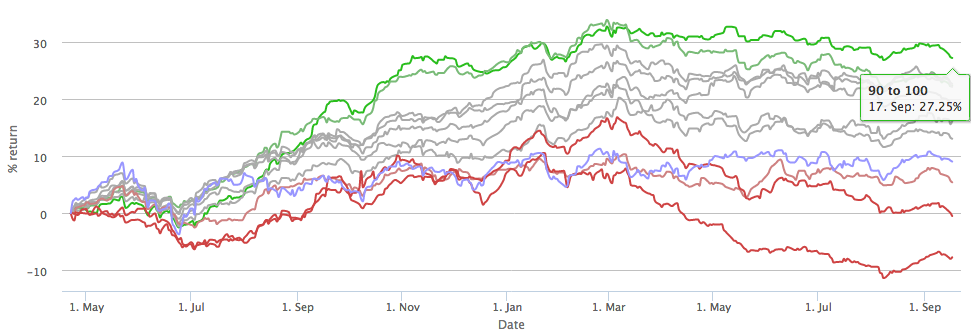One of the key points from my presentation at the Stock Market Show on Saturday is that investing successfully requires buying things most others shy away from. In fact, taken to the extreme it requires investing completely contrary to the best of human nature. Most normal, well adjusted people act socially, hang out with others and like to do the same things. But in markets, it pays off to behave completely differently - avoiding social consensus, seeking discomfort and venturing where others fear to. In fact, one study suggests the best investors may have more in common with psychopaths than well adjusted people.
Functional Psychopathy....
A 2005 study by researchers at Stanford Graduate School of Business illustrates this point very clearly. A coin flipping game was set up that bankrolled each participant with an initial $20. Each was asked to stake $1 in sequential rounds of a coin flip - if it landed heads up, they won $2.50, if it landed tails up they lost their stake. They could choose to sit out any round at will.
Everyone knows that flipping a coin offers a 50% chance of success... so the logical choice in this game would be to take part in every single round. After all a win makes you £1.50 better off and a loss only $1 worse off. On average a player would be $0.50 better off after every couple of rounds. One might expect most of the players to just play every round... but alas it seems most people did anything but...
On average players only invested in 58% of the rounds - they let their emotional response to bankroll fluctuations and the randomness of outcomes get in the way of logic. Fear and anxiety had crippled their returns.
The Price of Fear...
But even more extraordinary was the result when a set of brain damaged players were tested. A set of players were chosen who had lesions to the parts of the brain that hindered basic emotional responses such as fear and anxiety.
These participants ended up taking part in 83% of coin-flipping rounds, and ended up with 13% more money than their 'clear' minded colleagues. What these results illustrated quite clearly was that players that reacted less emotionally to losses were more willing to take risks with higher payoffs.
One of the authors of the study Professor Antoine Bechara of the University of Iowa was quoted as saying:
…



.png)







